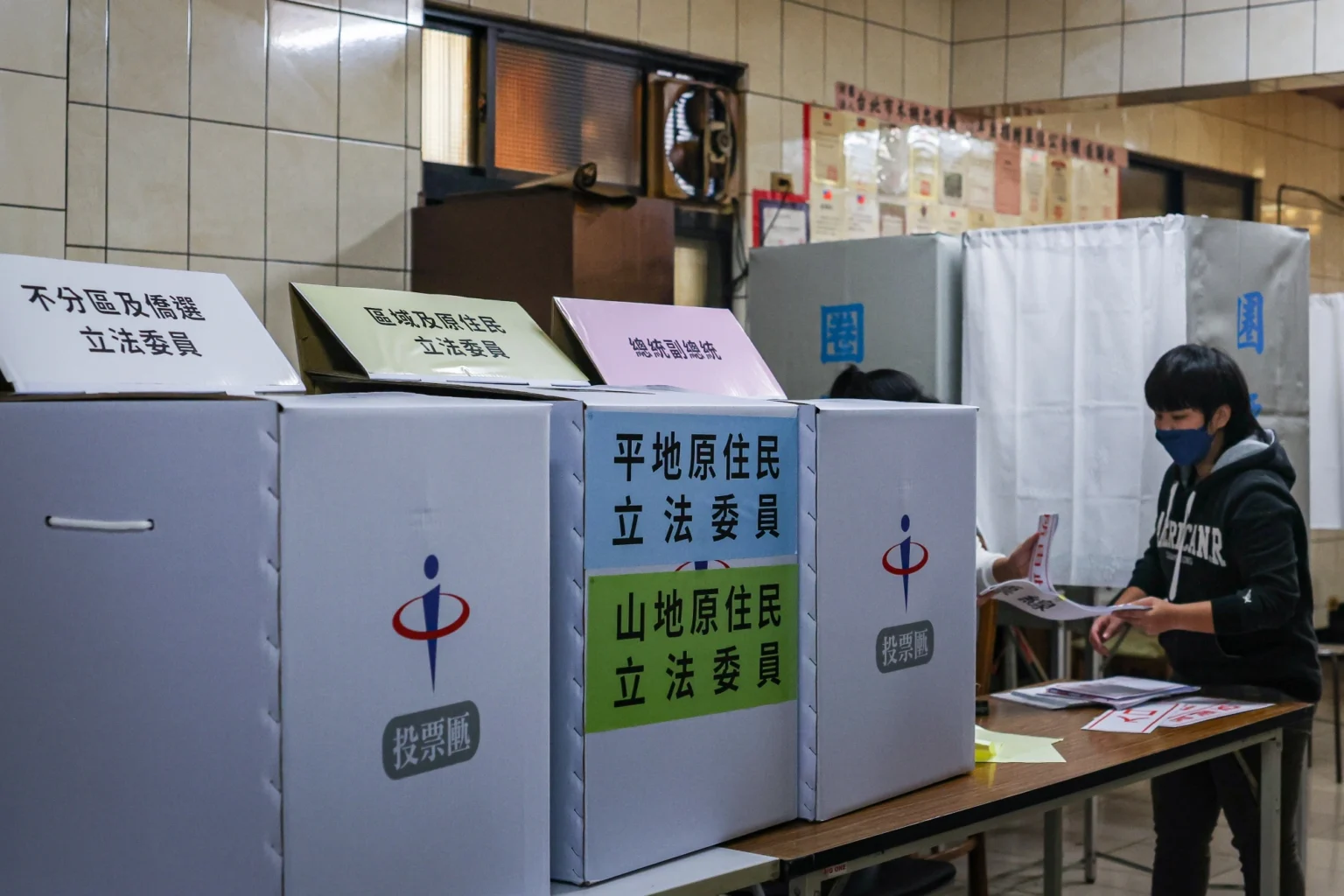Several of Taiwan’s political heavyweights, including President Tsai Ing-wen, went to polling stations on Saturday morning to cast their ballots in the presidential and legislative elections.

Accompanied by the ruling Democratic Progressive Party’s (DPP) vice presidential candidate Hsiao Bi-khim, head of the DPP’s New Taipei Branch Yu Tian and DPP lawmaker Chiang Yung-chang, Tsai arrived at the polling station in the Yonghe District of New Taipei at around 9 a.m.
Speaking with reporters, Tsai urged voters around Taiwan to cast their ballots to do their part in a modern democratic society, saying every vote counted as it could decide the future of the country.


Premier Chen Chien-jen cast his ballot in Taipei, saying he was delighted to see many voters lining up at the polling stations, providing evidence for a vibrant democracy in Taiwan.
Polling stations in Taiwan’s presidential and legislative elections opened at 8 a.m. Saturday and will close at 4 p.m.


There are three presidential tickets: the Taiwan People’s Party (TPP) presidential candidate Ko Wen-je and his running mate Wu Hsin-ying, the DPP presidential candidate Lai Ching-te, who is also Taiwan’s vice president and the DPP’s chairman, and his running mate Hsiao, and the Kuomintang’s (KMT) presidential candidate Hou Yu-ih and his running mate Jaw Shau-kong.
In addition to the presidential and vice-presidential election, a total of 113 legislative seats are also being contested, including 73 district lawmakers directly elected by voters, six indigenous lawmakers chosen by indigenous voters, and 34 legislators-at-large selected based on a separate vote for a political party.

Going to a polling station in Daan District of Taiwan with his wife Chen Pei-chi, TPP presidential candidate Ko, known as the TPP’s chairman, said he expected Saturday’s elections will yield a good turnout as Taiwan is enjoying beautiful weather.
Ko’s running mate, Wu, an early bird, who arrived at a polling station in the Xinyi District of Taipei at around 7:48 a.m. before it opened, said she was in a good mood. Wu, however, lamented Taiwan had no e-voting mechanism in place to allow eligible voters who cannot show up in person to cast their ballots.
Also on Saturday morning, DPP’s presidential candidate Lai, along with his wife Wu Mei-ju, went to a polling station located in the Anping District of Tainan, saying he cherished every voting opportunity as Taiwan has fought hard to preserve its democracy.
Lai’s running mate Hsiao arrived at a polling station in Yonghe, while many people lining up there sent greetings to her. She said she was nervous but had faith in her chance in the election.
Both Lai and Ko said they had a good sleep overnight although competition in the three-way presidential election had escalated.
For his part, the KMT’s presidential candidate Hou showed up in a polling station in Banqiao District of New Taipei, exchanging greetings with other voters. Hou, who expressed gratitude to his campaign staff, said despite fierce competition in the election campaigns among the political parties, people in Taiwan should unite themselves after the vote to build a better future for the country.

Jaw, Hou’s running mate, arrived at a polling station in Taipei, accompanied by Taipei Mayor Chiang Wan-an. He said he remained calm and confident in the election. Jaw encouraged voters to cast their ballots as the elections are critical to the country’s future.
The Central Election Commission has reminded voters heading to the polls to take their national identification cards, personal seals, and election notification letters with them.




